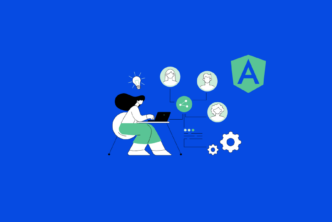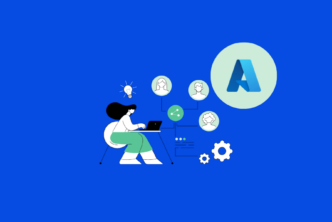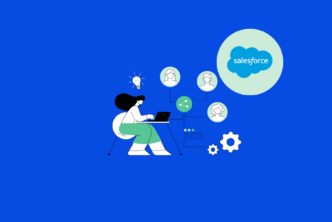Hiring skilled Azure DevOps professionals is crucial for organizations aiming to streamline their software development and delivery processes. Finding the right talent can be challenging, but it’s essential for success in today’s fast-paced tech world.
A well-planned hiring strategy that focuses on both technical skills and cultural fit is key to building a strong Azure DevOps team.

Azure DevOps combines a range of tools and practices that help teams work together more efficiently. When looking for candidates, we need to consider their experience with version control, continuous integration, and deployment automation.
It’s also important to find people who can work well in a collaborative environment and adapt to changing project needs.
In this post, we’ll share tips on how to create effective job descriptions, where to find qualified candidates, and how to assess their skills. We’ll also cover the importance of cultural fit and provide guidance on making the final hiring decision.
Key Takeaways
- Create clear job descriptions that outline both technical skills and soft skills needed for Azure DevOps roles
- Use a mix of technical assessments and behavioral interviews to evaluate candidates thoroughly
- Prioritize cultural fit and adaptability alongside technical expertise when making hiring decisions
Hire Azure DevOps Experts with YouTeam
Table of Contents
Understanding Azure DevOps
Azure DevOps is a powerful platform that helps teams build and deliver software faster. It brings together many tools and services in one place.
We use Azure DevOps to manage the entire software development lifecycle. This includes planning, coding, testing, and deployment.
The platform has five main parts:
- Azure Boards: For project planning and tracking
- Azure Repos: For version control of code
- Azure Pipelines: For continuous integration and delivery
- Azure Test Plans: For testing management
- Azure Artifacts: For package management
Azure DevOps can work with many programming languages and platforms. It supports both cloud and on-premises deployment options.
Teams can customize Azure DevOps to fit their needs. They can add extensions from the marketplace or create their own.
The platform offers strong security features. These include access controls and audit logs to keep projects safe.
Azure DevOps integrates well with other tools. This makes it easier to fit into existing workflows.
We can use Azure DevOps for small projects or large enterprise applications. It scales to meet the needs of different team sizes.
Planning Your Azure DevOps Strategy

A solid strategy lays the groundwork for successful Azure DevOps implementation. We’ll explore key steps to shape your approach and set your team up for success.
Defining Project Scope
We start by clearly outlining our project’s boundaries. This helps us focus on what matters most. We list the features and functions we need to deliver. We also identify what’s not included to avoid scope creep.
A well-defined scope guides our resource allocation. It helps us estimate timelines more accurately.
We use tools like user stories and epics to break down the work. This makes it easier to track progress and adjust as needed.
We involve stakeholders early to get their input. This ensures we’re aligned on expectations from the start.
Setting Goals and Objectives
Clear goals keep our Azure DevOps project on track. We use the SMART framework: Specific, Measurable, Achievable, Relevant, and Time-bound. This helps us create concrete targets.
Some common goals include:
- Reduce deployment time by 50%
- Increase test coverage to 80%
- Improve code quality scores by 25%
We tie our goals to business outcomes. This shows the value of our Azure DevOps initiative.
We also set short-term milestones to measure progress along the way.
Regular check-ins help us stay on course. We adjust our goals if needed based on new information or changing priorities.
Identifying Team Skills Requirements
We assess our team’s current skills and pinpoint gaps. This helps us plan for training or hiring needs.
Key skills for Azure DevOps often include:
- Version control (Git)
- CI/CD pipeline setup
- Infrastructure as Code
- Automated testing
- Agile methodologies
We create a skills matrix to visualize our team’s strengths and weaknesses. This guides our training and recruitment efforts.
Cross-training team members builds a more flexible workforce. We encourage knowledge sharing through pair programming and mentoring. This spreads expertise across the team.
We also consider soft skills like communication and collaboration. These are crucial for smooth Azure DevOps adoption.
Creating Job Descriptions
Crafting effective job descriptions is key to attracting the right Azure DevOps talent. We’ll explore how to outline responsibilities, pinpoint needed skills, and highlight cultural fit.
Specifying Role Responsibilities
We start by clearly defining what the Azure DevOps role entails. List specific tasks like managing CI/CD pipelines, setting up version control, and configuring Azure resources. Include responsibilities for monitoring system performance and troubleshooting issues.
Mention collaboration with developers and operations teams. Highlight duties related to automating processes and improving deployment workflows. Don’t forget to include any on-call or support expectations.
Be clear about the level of autonomy and decision-making power. This helps candidates understand their potential impact within the team.
Determining Qualifications and Skills Needed
We focus on the must-have technical skills for Azure DevOps success. List proficiency in Azure services, DevOps tools, and scripting languages. Specify required certifications like Azure DevOps Engineer Expert.
Include soft skills such as problem-solving and communication. Mention desired experience levels for different seniority roles. Consider adding nice-to-have skills to attract versatile candidates.
Use a bulleted list for easy readability:
- Azure Pipeline expertise
- PowerShell or Bash scripting
- Git version control
- Infrastructure as Code knowledge
- Agile methodology familiarity
Emphasizing DevOps Culture Fit
We look for candidates who align with DevOps principles. Highlight the importance of continuous learning and improvement. Mention valuing collaboration between development and operations teams.
Describe the fast-paced, dynamic work environment. Emphasize the need for adaptability and openness to change. Include phrases like “thrives in a team-oriented atmosphere” or “passionate about automation.”
Showcase your company’s commitment to DevOps practices. This attracts candidates who share these values. Mention opportunities for growth and learning new technologies.
Searching for Candidates
Finding the right Azure DevOps talent requires a multi-pronged approach. We’ll explore effective strategies to locate qualified candidates through professional networks, job boards, and social media platforms. But first of all we want to offer using YouTeam for sourcing and hiring Azure DevOps experts. YouTeam provides a list of pre-vetted candidates ready to start ASAP just within days.
Utilizing Professional Networks
LinkedIn is a top choice for finding Azure DevOps experts. We can use its advanced search features to filter by skills, experience, and location. Joining Azure DevOps groups on the platform helps us connect with professionals in the field.
We also recommend attending tech meetups and conferences focused on Azure DevOps. These events are great for meeting potential candidates face-to-face and building relationships.
Don’t forget to tap into our existing network. We can ask colleagues for referrals, as they might know skilled Azure DevOps professionals looking for new opportunities.
Posting to Job Boards
Popular tech job boards like Stack Overflow Jobs, Dice, and GitHub Jobs are excellent places to post Azure DevOps openings. We should craft clear, detailed job descriptions that highlight the specific skills and experience we’re seeking.
It’s important to include information about our company culture and any unique perks we offer. This helps attract candidates who align with our values and work environment.
We can also consider niche job boards that focus on Microsoft technologies or cloud computing. These platforms often attract specialists in Azure DevOps.
Leveraging Social Media
Twitter is a valuable tool for connecting with the Azure DevOps community. We can follow relevant hashtags like #AzureDevOps and #DevOpsJobs to find potential candidates and share our job openings.
GitHub is another great platform for identifying talented Azure DevOps professionals. We can search for users who contribute to Azure DevOps-related projects or have repositories showcasing relevant skills.
Creating engaging content about our Azure DevOps projects and sharing it on social media can also attract passive candidates. This helps build our employer brand and makes us more attractive to potential hires.
Evaluating Technical Skills
Assessing Azure DevOps skills requires a multi-faceted approach. We’ll explore key methods to gauge candidates’ abilities and ensure they can excel in your organization.
Reviewing Portfolios and Previous Work
We start by examining candidates’ past projects and contributions. A strong portfolio shows hands-on Azure DevOps experience. We look for examples of CI//CD pipelines, infrastructure as code, and automated testing.
Git repositories offer insights into coding practices and version control skills. We check for clear commit messages and proper branching strategies.
Documentation is another key area. Well-written READMEs and technical specs indicate good communication skills.
We also value candidates who contribute to open-source projects. This shows initiative and ability to work in distributed teams.
Conducting Technical Interviews
Face-to-face or virtual interviews let us dig deeper into a candidate’s knowledge. We ask about specific Azure DevOps features they’ve used.
Sample questions might include:
- How do you set up a multi-stage pipeline in Azure DevOps?
- What’s your approach to securing secrets in pipelines?
- How do you handle dependencies between different microservices?
We listen for clear explanations and real-world examples. Strong candidates can discuss both successes and challenges they’ve faced.
It’s also important to assess problem-solving skills. We present scenarios they might encounter on the job and ask how they’d approach them.
Read more on this topic in our article “10 Essential Interview Questions for Azure Developers (+Expected Answers)”.
Administering Practical Tests
Hands-on tests provide concrete proof of skills. We set up a sample Azure DevOps project and give candidates specific tasks to complete.
These might include:
- Creating a basic CI//CD pipeline
- Setting up infrastructure as code using Azure ARM templates
- Configuring automated testing in the pipeline
We evaluate not just the end result, but also the approach. Clean, well-organized code is key.
Time management is also important. We set reasonable time limits to see how candidates perform under pressure.
After the test, we discuss their solution. This gives insight into their thought process and ability to explain technical concepts.
Assessing Soft Skills and Cultural Fit

Hiring Azure DevOps professionals involves more than just technical skills. We need to look at communication, teamwork, and mindset to find the right fit.
Interviewing for Communication Skills
We ask candidates to explain complex technical concepts in simple terms. This shows if they can talk to both tech and non-tech team members.
We also check their written skills. We might ask for a short write-up on a DevOps topic. Clear, concise writing is key in Azure DevOps roles.
Active listening is crucial. We note how well candidates listen and respond to questions during the interview.
Evaluating Teamwork and Collaboration
We use scenario-based questions to gauge teamwork skills. For example:
“Tell us about a time you disagreed with a coworker on a project approach.”
We look for:
- Respect for others’ ideas
- Ability to find common ground
- Willingness to compromise
We might also set up a mock team exercise. This lets us see how candidates interact in a group setting.
Understanding DevOps Mindset
We probe for a candidate’s grasp of DevOps culture. Key areas we explore:
- Automation mindset
- Continuous learning attitude
- Comfort with change and quick iterations
We ask about past projects. We want to hear how they’ve applied DevOps principles in real work.
We also look for curiosity about new tools and methods. A good Azure DevOps pro is always eager to learn and improve.
Making the Decision
Selecting the right Azure DevOps candidate is crucial for project success. We’ll examine how to compare applicants, consider team dynamics, and finalize the job offer.
Comparing Candidates
We look at each applicant’s skills and experience. A scorecard helps us rank candidates objectively. We rate their Azure DevOps knowledge, coding abilities, and problem-solving skills.
We also check their certifications and past projects. This gives us a clear picture of their expertise.
Communication skills are key too. We assess how well they explain technical concepts. Good communicators help teams work better together.
We often give candidates a small test project. This shows us how they handle real Azure DevOps tasks.
Considering Team Dynamics
We think about how new hires will fit with our current team. Technical skills are important, but so is personality.
We look for people who can collaborate well. Azure DevOps work often involves teamwork. Good team players make projects run smoother.
We consider the candidate’s work style. Do they match our team’s pace and culture? This helps avoid conflicts later on.
We might invite top candidates to meet the team. This gives everyone a chance to interact. It helps us see if there’s a good fit.
Finalizing the Offer
Once we pick our top choice, we create a job offer. We make sure the salary matches the candidate’s skills and experience.
We include details about benefits, work hours, and start date. We also outline any special perks or bonuses.
We give the candidate time to review the offer. We’re ready to answer any questions they have.
If they accept, we start planning their onboarding. This helps new hires get up to speed quickly with our Azure DevOps practices.
If they decline, we’re prepared to offer the job to our second choice. Or we might restart the search if needed.
Onboarding and Integration
Bringing new Azure DevOps hires into the fold takes careful planning and execution. We’ll look at key steps to get them up to speed quickly and seamlessly integrate them into the team.
Training on Azure DevOps Tools
We start by giving new hires hands-on training with Azure DevOps tools. This includes walking them through the basics of Azure Boards, Repos, Pipelines, and Test Plans.
We set up practice projects for them to experiment with different features. This lets them learn in a safe environment before working on real tasks.
Pairing new hires with experienced team members can speed up the learning process. The veterans can share tips and tricks they’ve picked up over time.
We also point new hires to official Microsoft documentation and online courses. These resources help fill any knowledge gaps as they get comfortable with the tools.
Integrating into the Team
Team integration goes beyond just learning the tools. We make sure new hires understand our specific workflows and processes.
We assign them a mentor to guide them through their first few weeks. This gives them a go-to person for questions and helps them feel supported.
We include new hires in team meetings and planning sessions right away. This helps them see how we use Azure DevOps in our daily work.
We also set up 1-on-1s with key team members. This builds connections and gives new hires a chance to learn about different roles on the team.
Establishing Continuous Learning Practices
The Azure DevOps world moves fast. We help new hires build habits for ongoing learning and growth.
We set aside time each week for team members to explore new features or best practices. This keeps everyone’s skills sharp and up-to-date.
We encourage new hires to join Azure DevOps user groups or online communities. These forums are great for learning from others in the field.
We also set up internal knowledge sharing sessions. Team members can present on topics they’ve recently learned about or mastered.
Lastly, we work with new hires to create personal development plans. This helps them set goals and track their progress as they grow in their role.
Continuous Evaluation and Feedback

Keeping track of Azure DevOps hires is key for success. We need to measure performance, check in often, and get input from teammates.
Setting Performance Metrics
We should set clear goals for new Azure DevOps hires. These goals need to match the job and our team’s needs. Good metrics include:
- Code quality scores
- Project completion rates
- Bug fix times
- Deployment frequency
We can use Azure DevOps tools to track these metrics. This gives us hard data on how well the new hire is doing.
Regular Check-Ins and Reviews
We must schedule regular meetings with new Azure DevOps team members. These check-ins help us catch issues early and give praise for good work.
Weekly one-on-ones are a good start. We can:
- Go over recent work
- Answer questions
- Give tips for improvement
Quarterly reviews let us look at the bigger picture. We can compare performance to the set metrics and plan for future growth.
Encouraging Peer Feedback
Our whole team can help evaluate new Azure DevOps hires. We should create a culture where feedback is normal and helpful.
Some ways to do this:
- Set up code review processes
- Use pair programming
- Have team retrospectives after projects
This peer feedback gives us a fuller picture of how the new hire fits in. It also helps the team bond and share knowledge.
Frequently Asked Questions
Hiring Azure DevOps professionals can be tricky. We’ve gathered common questions to help you navigate the process and build a strong team.
What are the key qualifications to look for when hiring an Azure DevOps engineer?
Look for strong skills in Azure cloud services, CI/CD pipelines, and infrastructure as code. Experience with version control systems like Git is crucial.
Candidates should know containerization tools like Docker and orchestration platforms like Kubernetes. Familiarity with scripting languages such as PowerShell or Python is important.
Strong problem-solving and communication skills are also essential for success in this role.
What is the average salary range for an Azure DevOps professional in the USA?
The salary range for Azure DevOps professionals varies based on experience and location. Entry-level positions typically start around $70,000 to $90,000 per year.
Mid-level professionals can earn between $100,000 and $130,000 annually. Senior-level engineers may command salaries of $140,000 or more.
These figures can change based on factors like company size and industry demand.
How do I find and recruit entry-level Azure DevOps engineers for my team?
Partner with local universities and technical schools to find promising graduates. Attend job fairs and tech meetups to connect with aspiring professionals.
Offer internships or apprenticeships to nurture talent. Create job postings that highlight growth opportunities and mentorship programs.
Consider candidates with related IT backgrounds who show a strong interest in learning Azure DevOps.
Middle and Senior Azure DevOps you can find on YouTeam.
What are the best practices for integrating a new Azure DevOps hire into an existing team?
Assign a mentor to guide the new hire through your team’s processes and tools. Provide access to necessary resources and documentation from day one.
Include them in team meetings and decision-making processes early on. Encourage questions and create a supportive environment for learning.
Set clear expectations and goals for their first few months on the job.
Are there cost-effective strategies for small businesses looking to hire an Azure DevOps specialist?
Consider hiring remote workers to access a wider talent pool and potentially lower costs. Look into part-time or contract positions if you don’t need full-time support. YouTeam can help you hire remote full-time contractors from offshore destinations.
Invest in training existing IT staff in Azure DevOps skills. This can be more cost-effective than hiring a specialist.
Explore partnerships with Azure consulting firms for project-based work or temporary staffing.
At what stage of project development is it most beneficial to bring in a DevOps engineer?
It is most beneficial to bring in a DevOps engineer early in the project planning phase. This allows them to help design efficient workflows and infrastructure from the start.
Their input is valuable when setting up version control, choosing deployment strategies, and establishing monitoring systems.
Involving DevOps early can prevent costly rework and ensure smooth operations throughout the project lifecycle.






